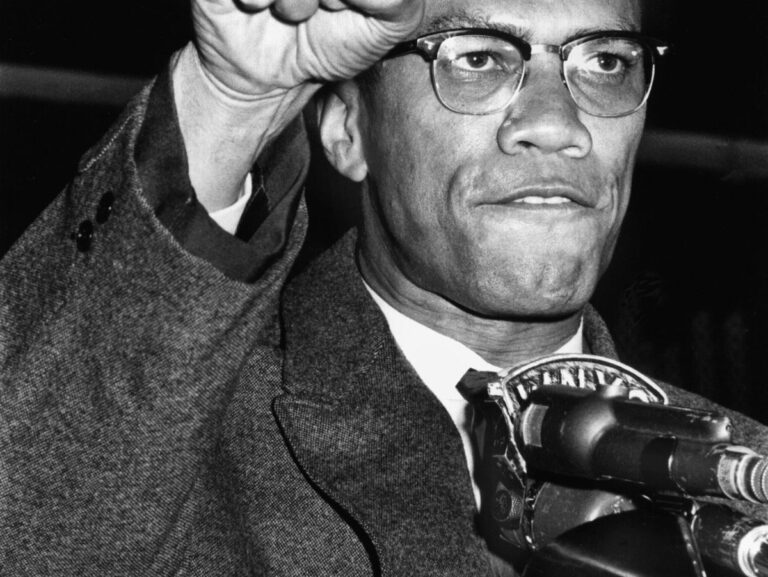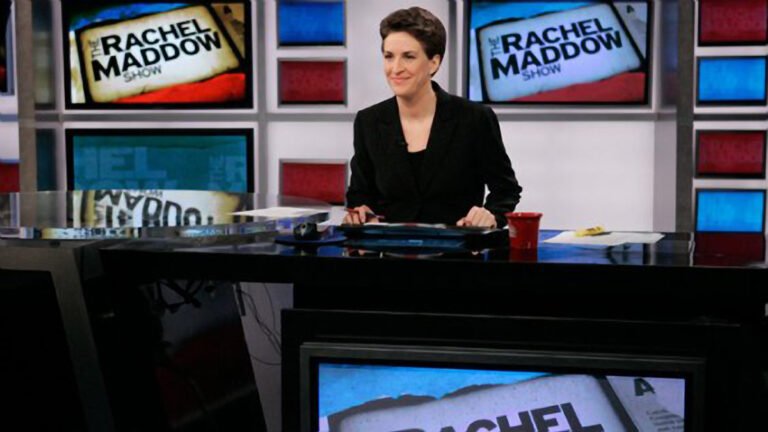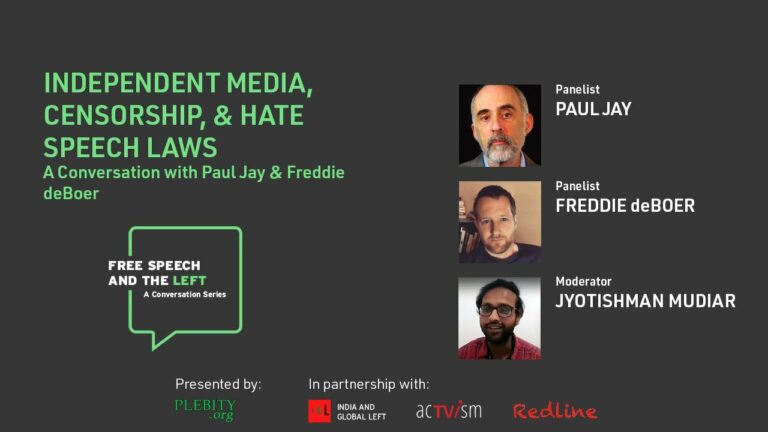On Reality Asserts Itself, Mr. Shallal says we went from No Child Left Behind under the Bush era to no kid left untested, then to no teacher left unstressed, and our schools are still doing very poorly.
This is an episode of Reality Asserts Itself, produced March 27, 2014.
STORY TRANSCRIPT
PAUL JAY, SENIOR EDITOR, TRNN: Welcome back to The Real News Network. I’m Paul Jay in Baltimore. And we’re continuing our series on Reality Asserts Itself with Andy Shallal, who now joins us again in the studio.
Hi, Andy.
ANDY SHALLAL, D.C. MAYORAL CANDIDATE: How are you doing, Paul?
JAY: So Andy runs Busboys and Poets, which is soon going to be about seven restaurants in Washington, D.C. It’s the hub of most progressive things in D.C. And if you want to know more about Andy’s bio, watch part one of this series, ’cause that’s what it’s all about. We’re going to pick up where we left off.
So we’re talking about your vision for education. You’re running for mayor of D.C. And I’ll remind everyone that the ground rules for this interview is Andy can’t critique anything about any of the other candidates. He can kind of just give his own vision of the future. And we’re doing that ’cause we’re not sure we’re going to interview any other candidates, although we’ve asked them.
So your main issues on education, what are the three, four things that need to be fixed, and how would you fix them?
SHALLAL: Sure. You know, the education system in D.C., as we mentioned earlier, needs a lot of fixing. So education reform came in 2007, the Education Reform Act that ushered the era of Michelle Rhee. A lot of people may know who she is. She’s a national figure now, education reform. So we went from No Child Left Behind under the Bush era to no kid left untested, to no teacher left unstressed, and our schools are still doing very poorly.
So at some point you have to ask yourself: are we going in the right direction? And the answer is clearly no, we’re not going in the right direction. We can learn some things. Of course we can pick up some positive things that have happened along the way. But we cannot continue in this path, because kids are falling off between the cracks. And the kids that are suffering the most are kids of color, particularly black kids. Black kids are dropping out of schools and they’re not progressing very well. Reading proficiency is at 12 percent. That is not a good record. So we have to reassess.
JAY: The leadership of the Democratic and Republican parties all seem to be on board with standardized testing, and that’s supposed to be the great way out of all this. You don’t think so.
SHALLAL: Well, I think, you know, good results sometimes hide bad things that are happening in the school system, and bad results sometimes hide good things that are happening in the system. So you can’t just judge everything on a test.
I’m not saying you should do away with testing. Testing is useful. It’s useful to set a direction, to understand where the gaps may be. But it’s not a place–the be-all and end-all. We made testing everything. It depends. A good test can give a teacher an enormous raise. It can keep a principal in their job. It can make sure that a school stays open. A bad test, the opposite: it’ll fire the principal, fire the teacher, close a school down. Those are very high stakes.
And when you create such high stakes on one matrix like that, you’re bound to create all kinds of problems, first of all lots of anxiety, which is pervasive in the school system now. You can’t teach under anxiety. You have to teach under collaboration, under a more supportive environment. So that’s one.
The other part is it’s been wide open for cheating. When everything depends on that, a person’s livelihood, a person’s, you know, ability to get a raise, and all of those things are dependent on the one test, there’s cheating. So there’s a lot of cheating in the system. In fact, we had one incident where 100 schools were seen with some irregularities in their testing, some of the erasures that were happening.
JAY: So how do you solve the problem? ‘Cause one of the reasons for this was you were finding kids graduating, say, from, you know, elementary school who are actually illiterate. There’s no way they should have been passing, but, you know, they were just passing through, and there needed to be some objective way to know how kids are doing.
SHALLAL: Right. I mean, that’s been happening throughout, in fact, people graduating out of high school and don’t read but for a second- or third-grade level.
We need to have more reading specialists, for instance, that could go on not just in elementary school but through middle school and through high school, a lot of teachers spending a lot of time in high school on remediation, trying to teach kids how to read, let alone teach them to learn. So there’s a lot of issues there that need to be addressed. We’ve created the situation where schools become the answer to all of society’s ills.
We have a lot of poverty in D.C. One out of five people in D.C. lives below poverty. One out of three children lives below poverty.
Kids come to school completely unprepared. We know by evidence and by track record that two-thirds of education happens outside the school, through family, parents, environment. You know, one-third only happens inside. So the teachers are having to make up for the two-thirds that’s missing for some of those kids’ lives. So teachers tell me that they have to bring fruits and vegetables for the kids just to give them something fresh to eat ’cause they don’t see fresh food in their environment. They have to become social workers, mental health specialists, family counselors, nutrition, nurses, you name it. By the time a teacher is ready to teach, the day’s over.
JAY: How racist is all of this, meaning are the conditions for white poor any different?
SHALLAL: There aren’t really white poor to speak of in D.C.
JAY: In D.C.
SHALLAL: Yeah, very, very small numbers. Almost entirely all of the poverty is centered around African Americans and some Latinos.
JAY: And the standardized testing and all of this, you have said in the previous segment there’s been some improvement, but it’s all in the demographic of people that have some money. Just look at that for a bit. But what is the substance of that improvement? Is it just kids are learning how to do tests?
SHALLAL: I think, if you’re going to judge it by that one matrix. But the fact of the matter is that schools and good neighborhoods are going to do well just by being there. First of all, their PTAs are very involved. They raise a lot of money. Some schools, $200,000 or $300,000 they raise in enrichment programs, in field trips, in things that they could do that other kids cannot possibly dream of doing. So you have that kind of thing.
And then you have outside the home. You know, kids get picked up from school, they get taken to tennis classes and swimming classes and enrichment classes, and they have tutors, and they have all of these opportunities that go way beyond what’s happening inside the school system.
JAY: So, to fix this, first of all you need not just the mayor; you need a city council, at the very least, who actually want to solve the problem of African-American poverty and lack of education. What would you do about it if you actually controlled the city council? What do your policies look like?
SHALLAL: You know, there’s an interest. I think D.C.’s a progressive town. There is an interest in making things better. So you need a vision. You need leadership. When the mayor comes up–and I promised I wouldn’t say anything negative.
JAY: Yeah, you’re getting on dangerous territory here.
SHALLAL: I’m running on dangerous territory. But when you hear over and over again that our schools are doing well, when Arne Duncan comes out and says we blew it out of the ballpark because our numbers have gone up, when President Obama comes out and says–.
JAY: You can attack President Obama, ’cause you’re not running against him.
SHALLAL: Got it. Got it.
JAY: So make it all about President Obama and you’ve got a free rein.
SHALLAL: I got you. When he says, you know, that our school system in Washington, D.C., are doing well, they’re basing it on the one number. The fact of the matter is that the NAEP results (the National Assessment for Educational Progress) have shown some increases year after year. It’s really hard to start arguing against that. And what it is is they’re giving misinformation. It’s, like, half the story. The other half is what’s missing. The fact of the matter is that our black kids are doing worse.
JAY: Okay. So what would you do about it?
SHALLAL: Well, you have to start over again. You have to start by making sure that we have a commitment to that and admit that there’s a problem. Then you start to take away the focus on just standardized tests as the only way to judge.
And you have to infuse more resources to make up for poverty. Poverty is real. It affects the way a child learns. We have to make sure we have the wraparound services around a school to make sure that we make up for the things that are missing outside that kid’s home. So you have to have social workers. You have to have family counselors. You have to have enrichment programs. You have to have mental health specialists. You have to have anger management type of work for some of these kids.
I’m proposing one thing to do is we have more universities around D.C. than we have high schools. The universities don’t pay property taxes. They can give back. They’re willing to give back. There’s not a real conduit for universities to get involved in the school system, in our school system. That’s a no-brainer. You bring them into the school system. You try to create programs so you can teach kids life. Some of these kids come without life skills. So I would say after fifth grade, when kids are getting ready to go from elementary school to middle school, you do a summer program, a six-week program to teach them life skills–conflict resolution, you teach them about bullying–.
JAY: Everything you’re talking about has a price tag. So when you’re saying–.
SHALLAL: No, that doesn’t have a price tag. That does not–.
JAY: But all the increased social services do.
SHALLAL: Well, the increase–yeah. But, you know, we’re paying for them on the other end anyway. We pay for them in many different ways. We have one of the highest teen pregnancy rates in the entire country. We have a lot of our kids–one-tenth of the population of all of D.C. are returning citizens, which means they’ve been to jail, they’ve served time. So all of these things cost an awful lot of money, much more than the services we need.
And the problem is we have the services; they’re just not there to reach the people that need it the most. So we have to make them accessible. We have to have these services near or around the schools that need it, not just somewhere downtown.
So somehow we need to match up the needs of the people with the services that are available. We spend quite a bit of money in social services in D.C. We’re actually pretty good at that. Just those social services aren’t reaching the people that need them.
JAY: So it’s not a question of more resources; it’s better-organized resources. Or both?
SHALLAL: I think [incompr.] we have an awful lot of waste, an awful lot of waste. But I think it’s also both. I think it is about making sure that you line up the resources with the needs. Right now, every kid throughout the entire system gets the same amount of money. We need to make sure that we add a little bit more to needed schools.
JAY: Is part of the problem also that both in terms of curriculum and expectation, there’s no education about how are we going to get out of poverty? There’s no sense of that kind of political discussion.
SHALLAL: Right.
JAY: And, like, the education either has–you have to have a realistic expectation that if I study hard, life is really going to get better, and to a large extent it doesn’t. You know, a lot of kids do graduate from high schools, and Baltimore’s not all that different from D.C., and there’s nothing next, there’s no second act, even if you did fairly well in school, never mind if you didn’t. And then there’s no–next to no discussion about, you know, how do we deal with this in a systemic political way. In other words, you’re not–there’s no way to learn how to think.
SHALLAL: Yeah. I think we’ve also really commodified poverty. And poverty is big business now. So there’s a lot of–.
JAY: So are prisons.
SHALLAL: Yes, absolutely.
JAY: And maybe we’re saying the same thing.
SHALLAL: That ties into all of that. So, you know, worse comes to worse, a kid doesn’t do well, they end up going to jail, hey, we’ve got it. It’s a win-win for some group of people, right?
So I think in that sense they’ve figured out a way to monetize poverty. So there’s not a real incentive to end it, in that sense. So that’s really an important thing.
The other thing is we have–in D.C., for instance, we have more jobs than people to fill them. We have more jobs in D.C. available. So when politicians get up and say, we need more jobs, we don’t need more jobs. We need to train people to get the jobs that are available. We need to bring back vocational training into schools, to make it so that kids that want to do other than go to college, something else, learn cosmetology, learn about auto mechanics, learn about IT, learn about things that don’t require a four-year college degree–I think it’s really important to bring those back in schools.
JAY: But do you think there’s been kind of a de facto understanding or policy that’s not stated that what we as a society are going to do in areas of chronic poverty, especially African-American and Hispanic, is we’re going to find the few bright lights and we’re going to make sure they do okay and to hell with everybody else?
SHALLAL: Well, there’s a lot of bright lights. It’s just I think those bright lights are not given the opportunity to shine.
JAY: But a few are.
SHALLAL: Yeah, yeah.
JAY: There’s now a few doors open.
SHALLAL: Yes.
JAY: But in terms of trying to really do anything transformative to this chronic poverty and help the people that don’t shine, you know, a few do, and there’s always going to be a few kids that no matter what are going to come to the fore, and now maybe some of them are finding ways out. But everybody else–.
SHALLAL: Yeah, I mean, we have this blame society. When somebody’s poor, we blame it on them. It’s their fault. They’re too lazy. They don’t seem to pull themselves up by their bootstraps. We hear that over and over again.
And the reality is, when you look at it, that a lot of people are in, you know, systemic poverty. They–you know, you have a young mother who has a baby, and then she has to figure out a way to make a living. That baby–she can’t drop off that baby somewhere and go off and find a job. And when she does find a job, it’s a minimum-wage job. That minimum-wage job does not put a roof over her head. It puts her in a cycle of poverty. And suddenly she’s having baby number two, because there’s not enough counseling, there’s not enough opportunities, there’s not enough hope for that person. They did a study in Washington, D.C., where they were interviewing high school kids, kids that have dropped out. Their form of entertainment is having sex, because there’s nothing else to do. There’s not enough programs. There’s not enough after-school programs.
JAY: Now, how are you finding people responding to this campaign if this is the way you’re talking? Because the fact is the majority of people that vote are not going to be people that live in poverty.
SHALLAL: Well, what’s interesting, what I’m finding interesting is the debate has changed completely in this election cycle. The issues that I’ve been talking about have become picked up by all of the candidates. So everybody’s talking about improving schools now. Everybody’s talking about the achievement gap, which no one mentioned before. Everybody gets up and says how we’re doing so well in schools, and suddenly the achievement gap has become a big issue.
I brought race into this debate, into the conversation in this election, because race is oftentimes not talked about, because when you talk about things like gentrification which matter a lot to people, they matter much more to black people, they matter a lot more to people that have been living in the city for a long time and finding themselves unable to afford it. But for an average white person moving to the city, gentrification is pretty cool. It means that you have a nice coffee shop, you have some hipster clothing store around the corner, you have clean streets, you have more services.
JAY: But those are a lot of the people that are going to vote in this election.
SHALLAL: Not necessarily. I mean, I think, yes, a lot of people vote, and, you know, African Americans as well as white people vote. But I think–.
JAY: Well, not all hipsters are white, that’s for sure.
SHALLAL: Well, okay. Yeah, you’re right.
JAY: Especially in D.C. There’s a lot of good government jobs and not–you know, there’s a lot of African Americans have pretty good government jobs. And there’s a class question there, too [crosstalk]
SHALLAL: I agree. Maybe we’re talking about two different things, but hipsters are a different group. But, anyway–.
JAY: Yeah, culturally I have no idea what these categories are.
SHALLAL: I have young–you know, kids in their 20s, so I know what hipster is. We talk about that.
JAY: In terms of that I have no idea.
SHALLAL: Yeah, yeah.
But I think it’s important to understand that when we’re talking about these issues, gentrification, that we talk the same language to each other, that gentrification in one group of people has a whole different meaning than to another group.
JAY: Okay. You said you introduced issues of race, you introduced issues of class in this election. So that gets to my next big question, and I’m going to ask it in the next segment, which is: why’d you run for mayor? And we’re going to take up that question in the final segment of this series of Reality Asserts Itself on The Real News Network.









